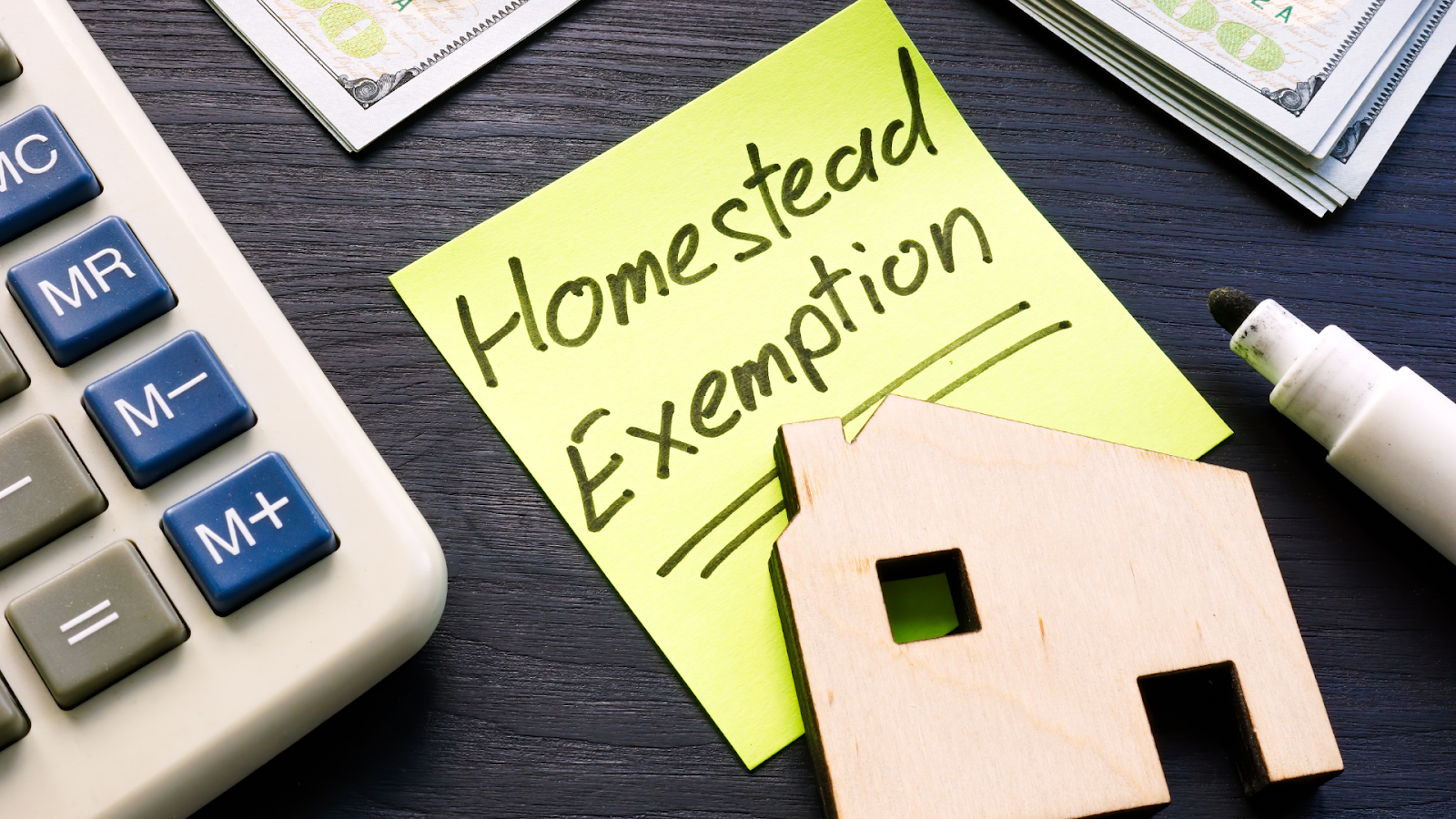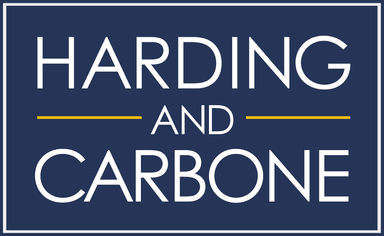
How Much Can You Save With A Texas Homestead Exemption?
October 11, 2025
Key Takeaways:
- Tax Savings: Homestead exemptions reduce the taxable value of your home, leading to meaningful yearly savings.
- Eligibility Rules: To qualify, the property must be your primary residence and ownership must be established by January 1.
- Professional Support: Harding & Carbone helps homeowners protest inflated appraisals to secure the maximum possible tax relief.
Property taxes are a major expense for Texas homeowners, and finding ways to lower those costs can have a lasting impact on financial stability. One of the most effective ways to reduce your property tax bill is through the homestead exemption, which removes part of your home’s value from taxation and can lead to significant savings year after year.
At Harding & Carbone, we’ve been serving property owners for more than fifty years, building a reputation for integrity, efficiency, and results. Our team of experienced consultants has helped countless Texas homeowners and businesses navigate the property tax system, secure exemptions, and achieve meaningful reductions in their annual tax obligations.
What Is A Homestead Exemption In Texas?
For Texas homeowners, the homestead exemption is one of the most important tools for reducing property tax obligations. It lowers the taxable value of your primary residence and offers added benefits for seniors, disabled individuals, and veterans. Here’s a closer look at the different types of exemptions available:
General Residential Homestead Exemption
The standard exemption provides a $100,000 reduction in the appraised value of your home for school district taxes. For example, if your home is valued at $300,000, this exemption lowers the taxable value to $200,000, directly reducing your annual tax bill.
Over-65 Or Disabled Exemption
Homeowners who are age 65 or older, or those with disabilities, may claim an additional $10,000 exemption for school district taxes. A key feature of this exemption is that it freezes the school tax amount at the level paid during the first year of qualification, protecting against future increases as property values rise.
Disabled Veteran Exemption
Veterans with a disability rating can qualify for additional exemptions, which vary depending on the percentage of disability. Those rated at 100% disabled may be eligible for a full exemption from property taxes on their homestead, providing complete relief from this recurring expense.

Benefits Of Homestead Exemptions For Texas Residents
The homestead exemption doesn’t just reduce property taxes in the short term, it also provides long-term stability and special advantages for qualifying homeowners. These benefits can make a meaningful difference in how much you pay each year and how your taxes are managed over time:
Reduction In Taxable Value
The primary advantage of the homestead exemption is the reduction in taxable value. By removing a portion of your home’s appraised value from taxation, you immediately lower your property tax bill. This annual reduction can add up to significant savings throughout the time you own your home.
Stability For Seniors And Disabled Homeowners
For residents who are 65 or older, or who have a disability, the exemption provides additional security. Once approved, the school district portion of your taxes is frozen at the amount paid in the first year of qualification. This prevents future increases, offering financial predictability during retirement years or while managing disability-related expenses.
Portability For Over-65 Exemption
Another unique feature is portability. Homeowners over 65 can transfer the percentage of their school tax ceiling to a new homestead if they move. This means your tax savings follow you, keeping your benefits intact even if you change residences.
How Much Can You Save From A Homestead Exemption?
The exact savings from a homestead exemption vary depending on your home’s value and the property tax rates in your county. By reducing the taxable value of your property, this exemption can save you hundreds or even thousands of dollars every year:
Example Of Standard Savings
Consider a home appraised at $250,000 with a school district tax rate of 1.5%. Without an exemption, the annual tax bill would be $3,750. With the $100,000 standard homestead exemption, the taxable value drops to $150,000, lowering the bill to $2,250, a savings of $1,500 each year.
Added Savings With Over-65 Or Disabled Exemptions
Homeowners who qualify for the over-65 or disabled exemption enjoy additional relief. Along with the extra $10,000 reduction, the freeze on school district taxes ensures long-term savings. This feature can keep taxes manageable even as property values continue to rise.

Disabled Veteran Savings
For veterans with service-related disabilities, the benefit can be even greater. Depending on the disability rating, exemptions may remove a large portion or in some cases, all of the taxable value of the home. Veterans rated at 100% disabled may pay no property taxes at all on their homestead.
Homeowners across Texas have relied on Harding & Carbone for decades to guide them through the property tax process. Learn more about our proven approach to reducing tax burdens and protecting long-term savings.
How To Qualify For The Texas Homestead Exemption
Qualifying for a homestead exemption in Texas requires meeting specific requirements related to residency, ownership, and filing an application. Homeowners who follow these steps can unlock substantial property tax savings:
Primary Residence Requirement
The property must serve as your primary residence, meaning it is the home you live in most of the time. Vacation properties, rental homes, or investment properties do not qualify for the exemption.
Ownership As Of January 1
You must own the property on January 1 of the tax year in which you are applying. Ownership can be established through a deed, title, or other legal documentation proving you are the homeowner.
Application With The County Appraisal District
To receive the exemption, you need to file an application with your local county appraisal district. The process usually involves submitting an Application for Residential Homestead Exemption along with proof of identity and proof of residency, such as a Texas driver’s license and a utility bill showing the same address.
Renewal And Updates
Once approved, the homestead exemption generally renews automatically each year. However, homeowners are responsible for notifying the appraisal district if their circumstances change, such as moving to a new residence or converting the property into a rental.
How Harding & Carbone Can Help Maximize Your Savings
While the homestead exemption already provides meaningful tax relief, many homeowners end up paying more than necessary because their properties are overvalued by the appraisal district. At Harding & Carbone, we focus on helping property owners reduce their overall tax burden through professional protest services and expert guidance:
Expert Property Analysis
Our team carefully reviews your property’s appraisal to identify errors or inflated values. By comparing your property to similar homes in the area and considering market conditions, we determine if you are being taxed fairly.
Filing A Formal Protest
If your home is overvalued, we handle the process of filing a formal protest with the county appraisal district. This ensures deadlines are met and documentation is accurate, saving you the time and stress of navigating the process on your own.
Representation At Hearings
When a protest requires a hearing before the appraisal review board, our experts represent you directly. With decades of experience in Texas property tax law, we present a strong case to secure the most favorable outcome.

Maximized Tax Savings
By combining the benefits of the homestead exemption with successful property tax protests, we help homeowners achieve the greatest possible savings. This approach keeps annual tax bills manageable and protects your financial stability long term.
Explore our full range of property tax services designed to help homeowners and businesses lower assessments, manage exemptions, and secure lasting benefits.
Additional Tax Savings Opportunities
Beyond the homestead exemption, Texas homeowners may qualify for other exemptions and special programs that can further reduce property tax liability. These opportunities can apply to specific situations, land uses, or renewable energy investments:
Agricultural Exemption
Property used for farming, ranching, or wildlife management may qualify for an agricultural exemption. Instead of being taxed on market value, the land is taxed based on its productive use, which often results in a much lower taxable value.
Freeport Exemption
Businesses that store goods in Texas for the purpose of shipping them out of state may benefit from the Freeport Exemption. This removes certain types of personal property from taxation, reducing costs for companies engaged in trade and export.
Renewable Energy Exemptions
Installing solar panels or wind turbines can qualify a property for renewable energy exemptions. These exemptions reduce the taxable value of your home or land based on the installed systems, offering savings while encouraging sustainable energy use.
Over-65 And Disabled Veteran Tax Deferral
In addition to exemptions, certain homeowners can defer paying property taxes. Seniors over 65 and disabled veterans may postpone their tax payments without penalty or interest until the property is no longer their homestead. This can be especially helpful for those on fixed incomes.
Final Thoughts
Homestead exemptions play a vital role in reducing property tax obligations for Texas homeowners. By lowering the taxable value of your home, and offering added advantages for seniors, disabled individuals, and veterans, these exemptions create long-term financial relief and stability.
Working with Harding & Carbone can further enhance those savings. Our expertise in property tax protests ensures that your home’s appraised value reflects its true market condition, helping you avoid unnecessary tax burdens. When combined with the homestead exemption and other available programs, this approach gives you the strongest possible strategy for minimizing property taxes year after year.
If you believe your property has been overvalued or want to confirm you’re receiving every exemption you qualify for, reach out through our contact page. Our team is ready to provide the guidance you need.
Read Also:
- Everything You Should Know About Galveston County Property Taxes
- Brazoria County Taxes: A Guide To Rates, Exemptions, And Due Dates
- Property Tax Advice For Montgomery County Homeowners
Frequently Asked Questions About Texas Homestead Exemption Savings
Can I lose my Texas homestead exemption if I move temporarily?
Yes, if the property no longer serves as your principal residence, you may lose eligibility. However, temporary absences for reasons like work or health usually do not affect your exemption as long as you intend to return.
Can multiple people claim a homestead exemption on the same property?
No. Only one homestead exemption is allowed per household, even if multiple owners live at the residence.
If I inherit a property, do I automatically get the homestead exemption?
Not automatically. You must apply for the exemption yourself and show proof that the property is now your primary residence.
Does the Texas homestead exemption protect against creditors?
Yes, Texas law provides homestead protections that safeguard your primary residence from most creditors, though there are exceptions such as mortgage lenders or property tax liens.
How long does it take for a homestead exemption to be approved?
Approval times vary by county, but most appraisal districts process applications within a few weeks to a few months, depending on the time of year.
Can I apply for a homestead exemption if my name is not on the deed?
No. To qualify, you must have ownership interest in the property. This means your name should appear on the deed, title, or another form of legal ownership.
Does the exemption apply to second homes or vacation houses?
No. Homestead exemptions in Texas apply only to your primary residence. Investment properties, vacation homes, or rental houses do not qualify.
If I refinance my mortgage, do I need to reapply for the homestead exemption?
No. Refinancing your home does not affect your exemption status. As long as the property remains your primary residence, the exemption continues.
Do homestead exemptions affect county, city, and special district taxes?
Yes, but the savings vary. While the $100,000 exemption applies specifically to school district taxes, some local taxing units may offer additional exemptions.
Can surviving spouses maintain a deceased homeowner’s exemption?
Yes. A surviving spouse may continue to receive the over-65 or disabled veteran exemption if they are at least 55 years old at the time of the homeowner’s death and remain in the home as their primary residence.
